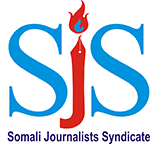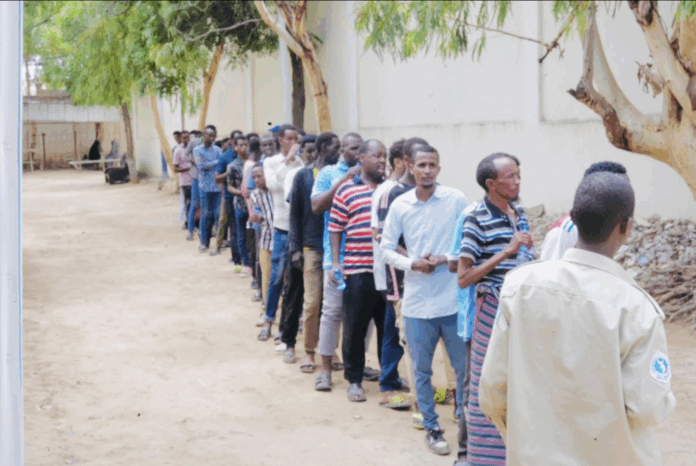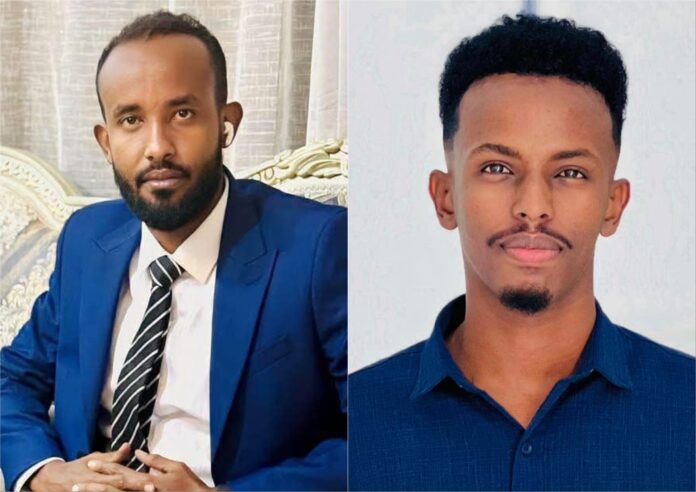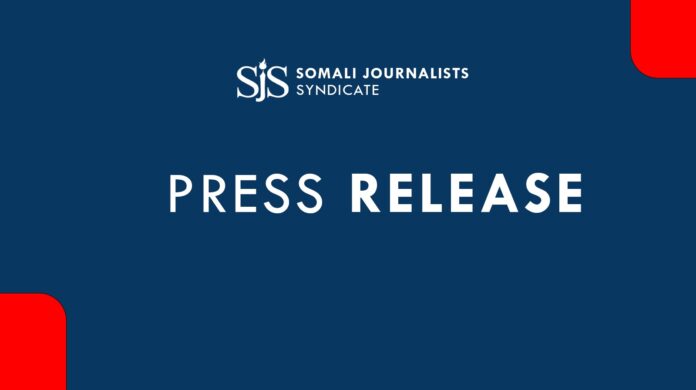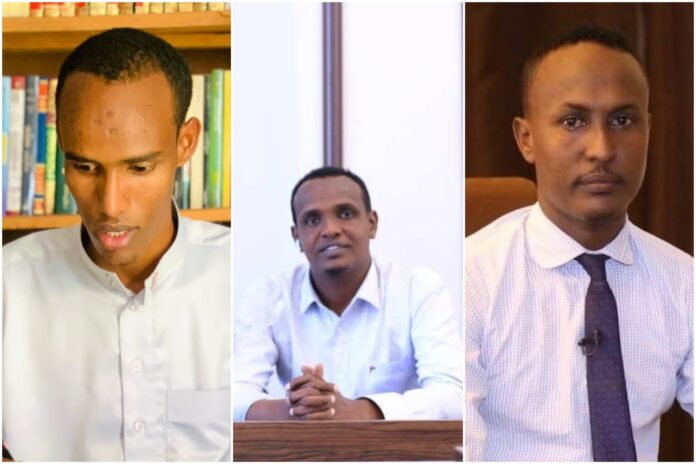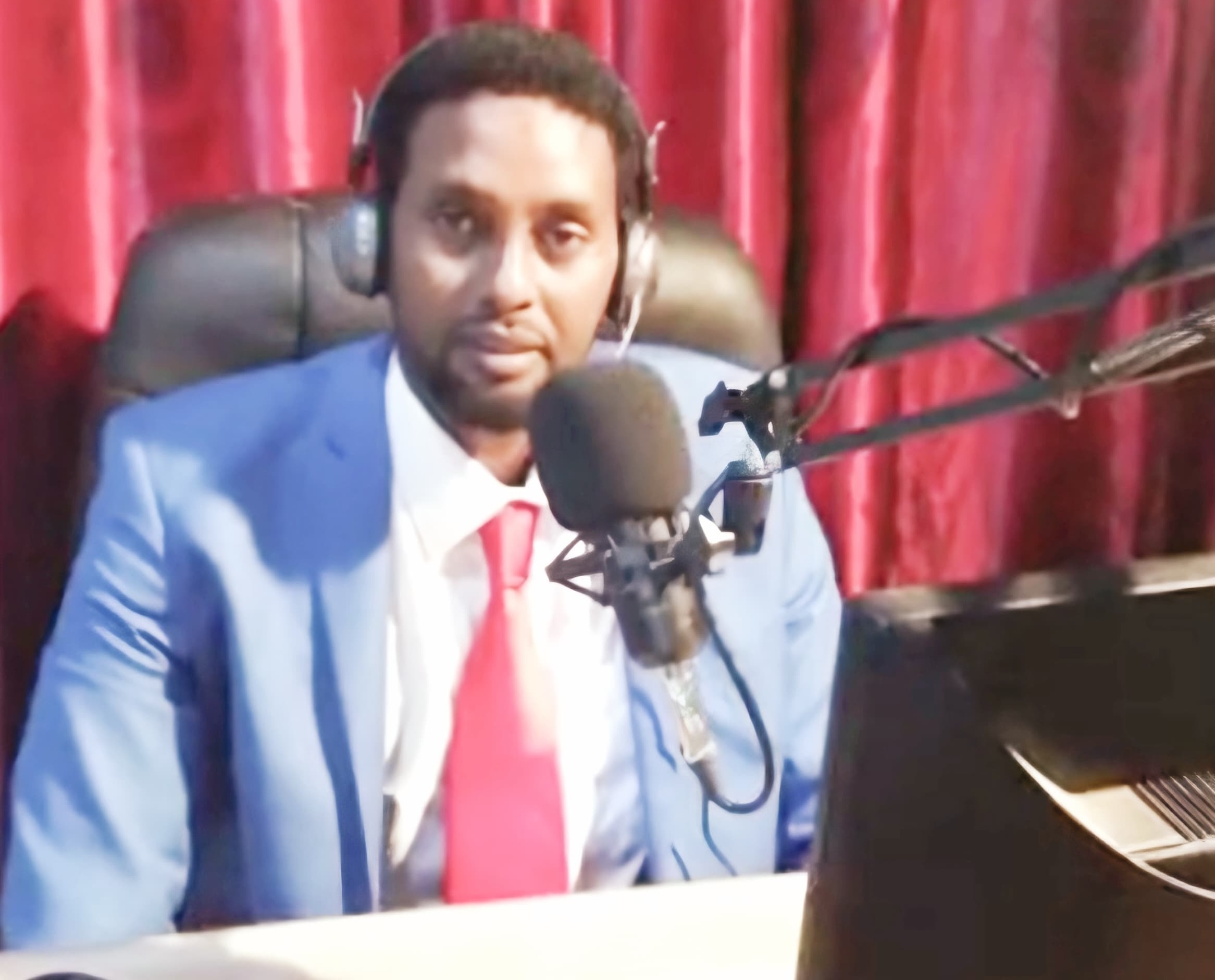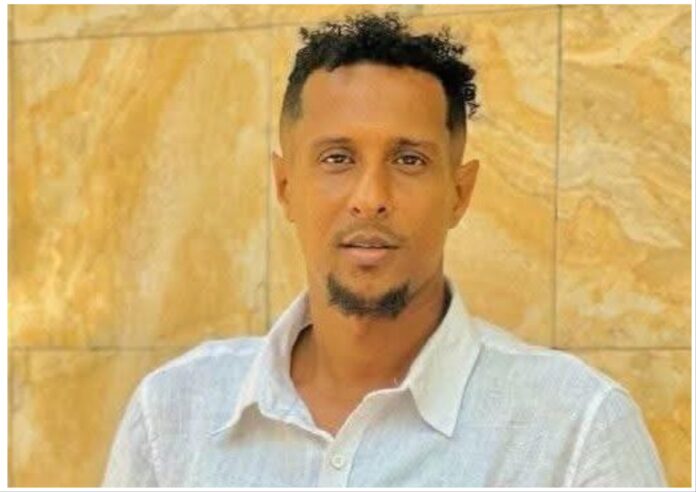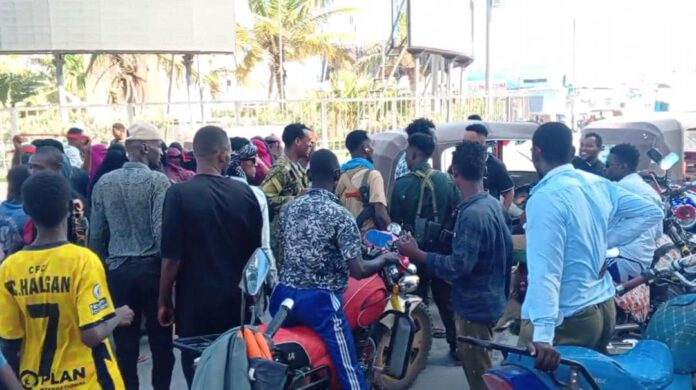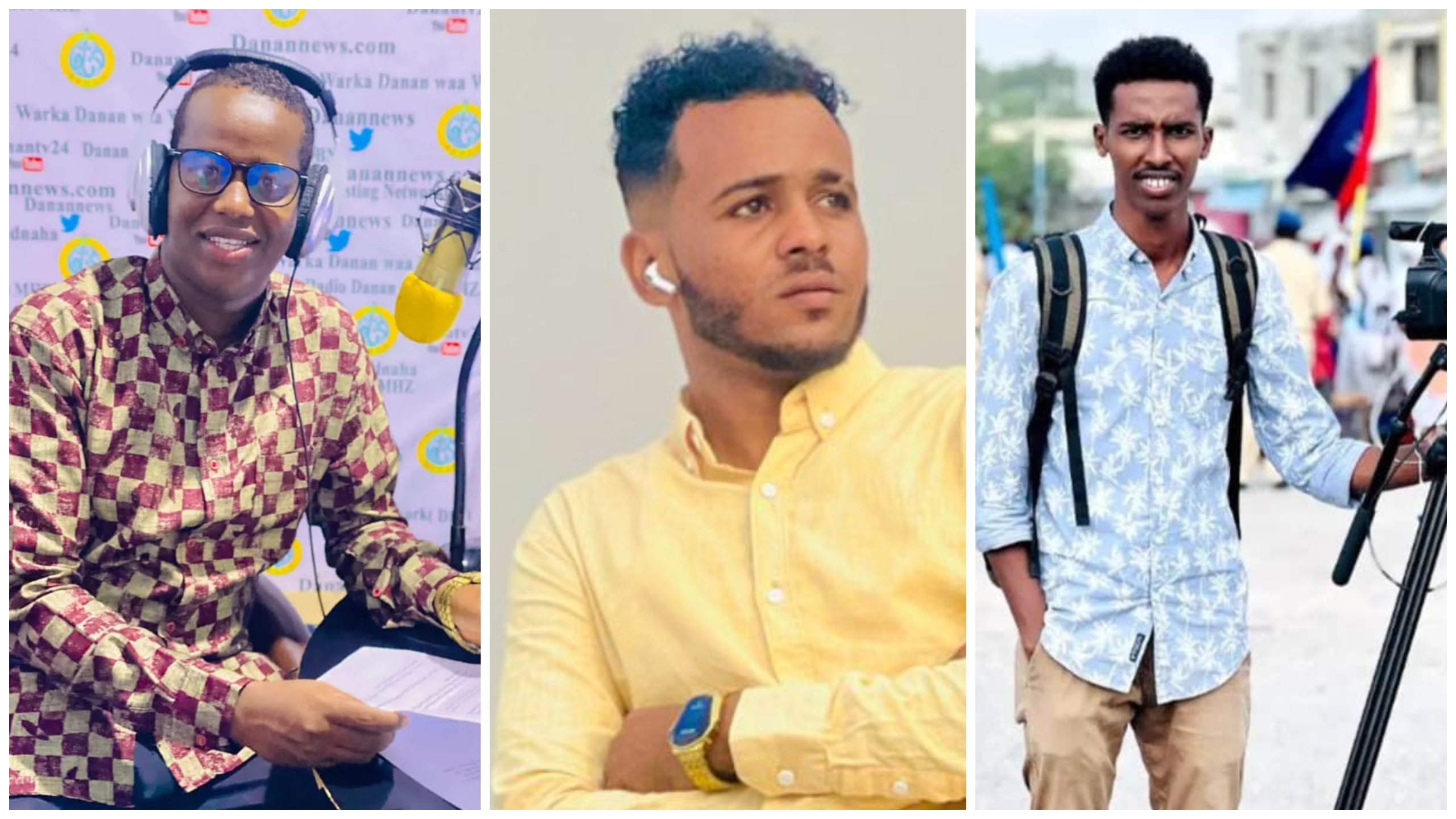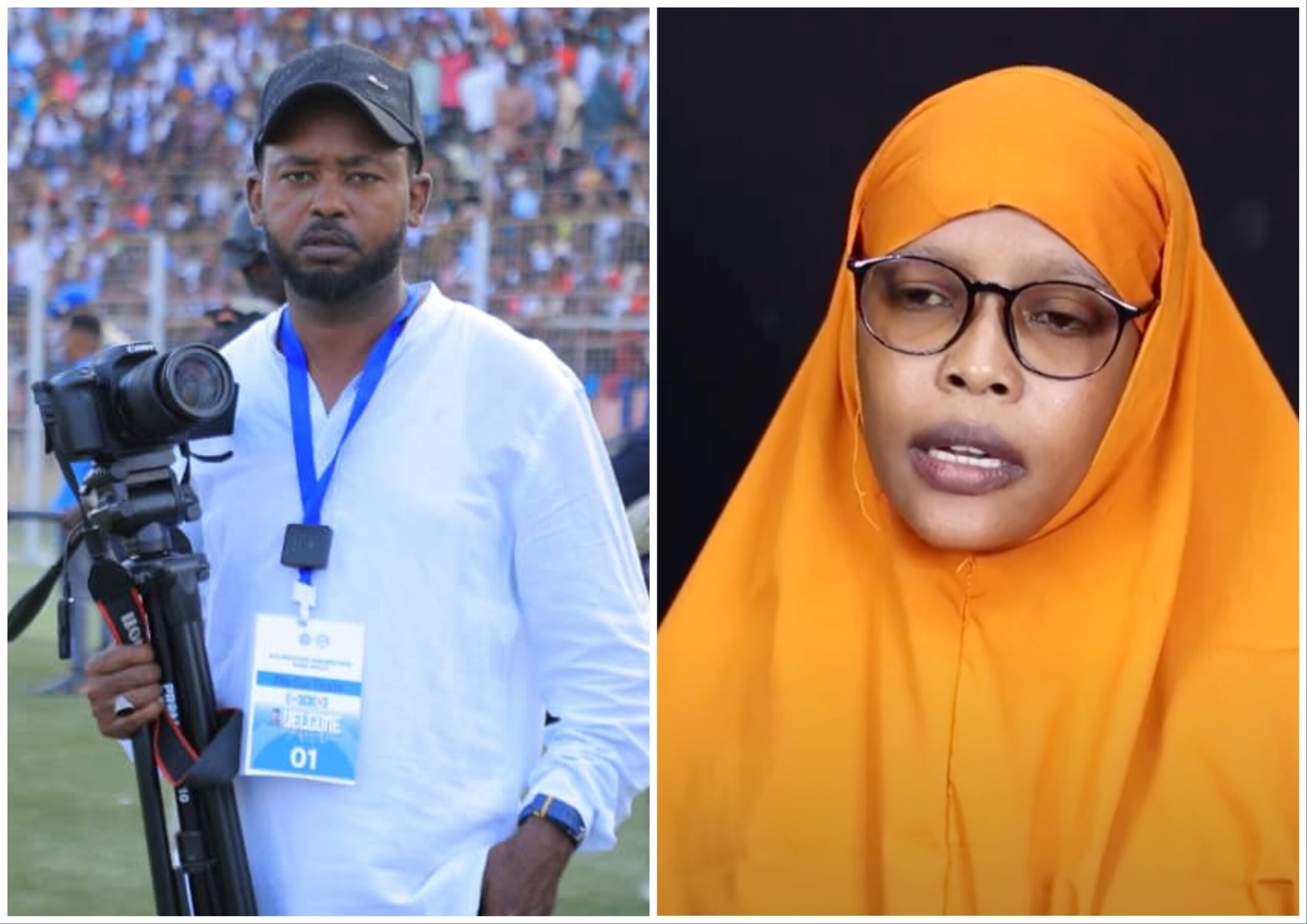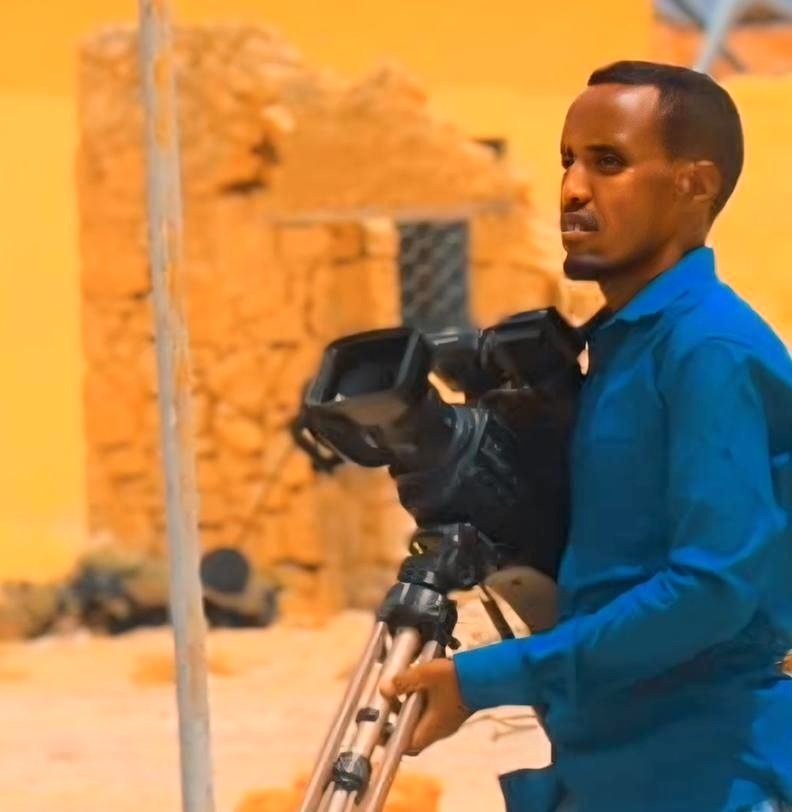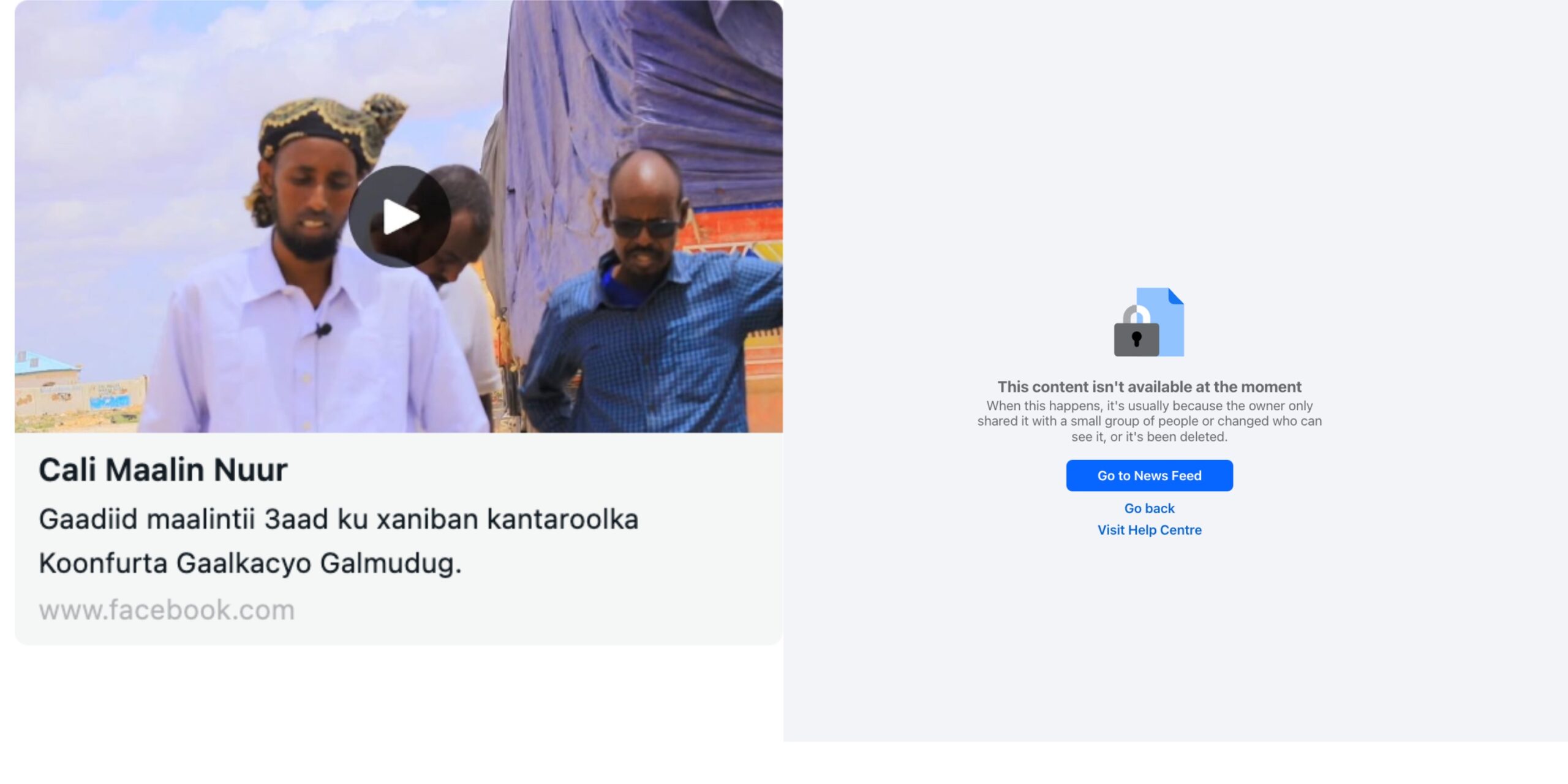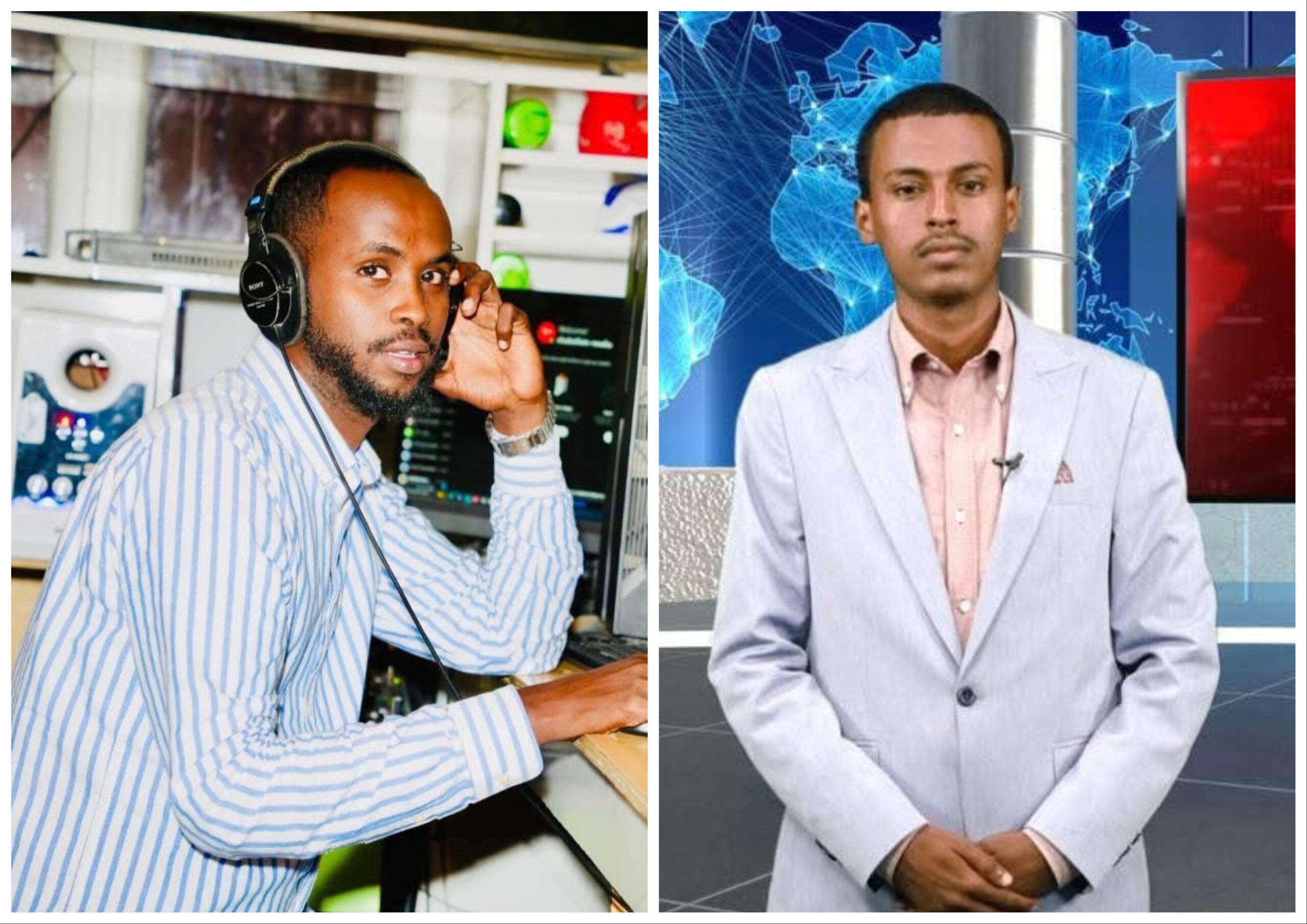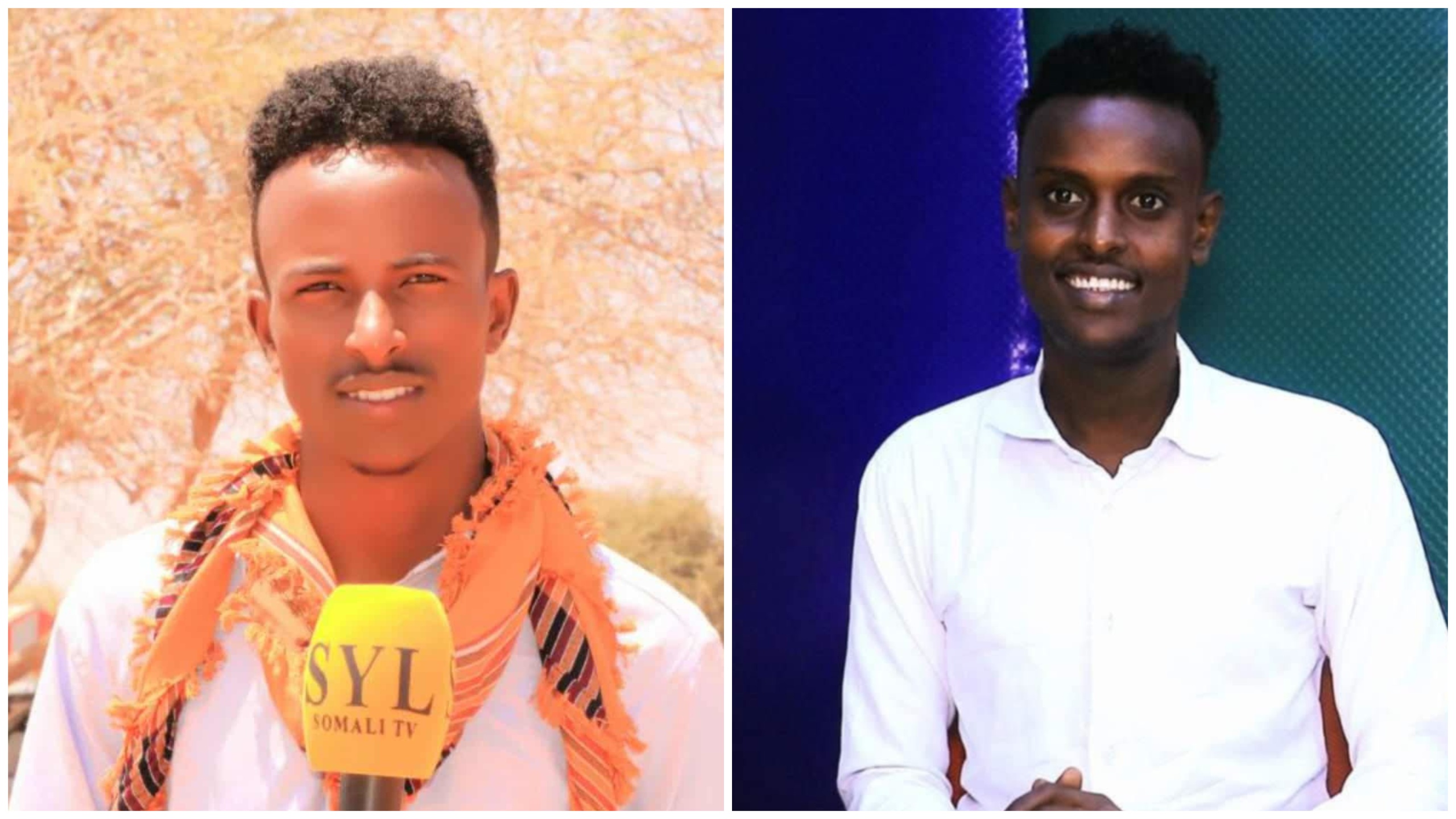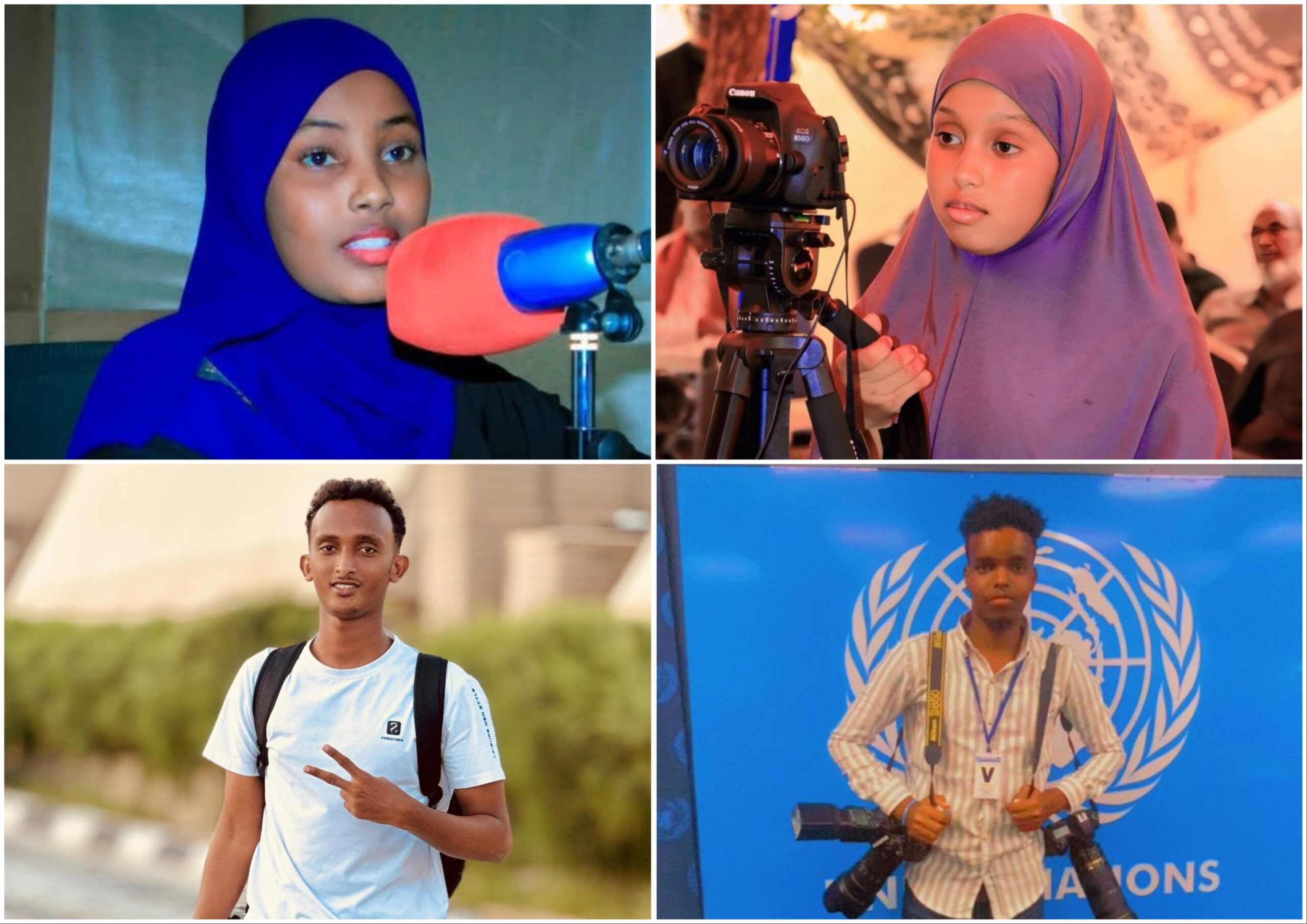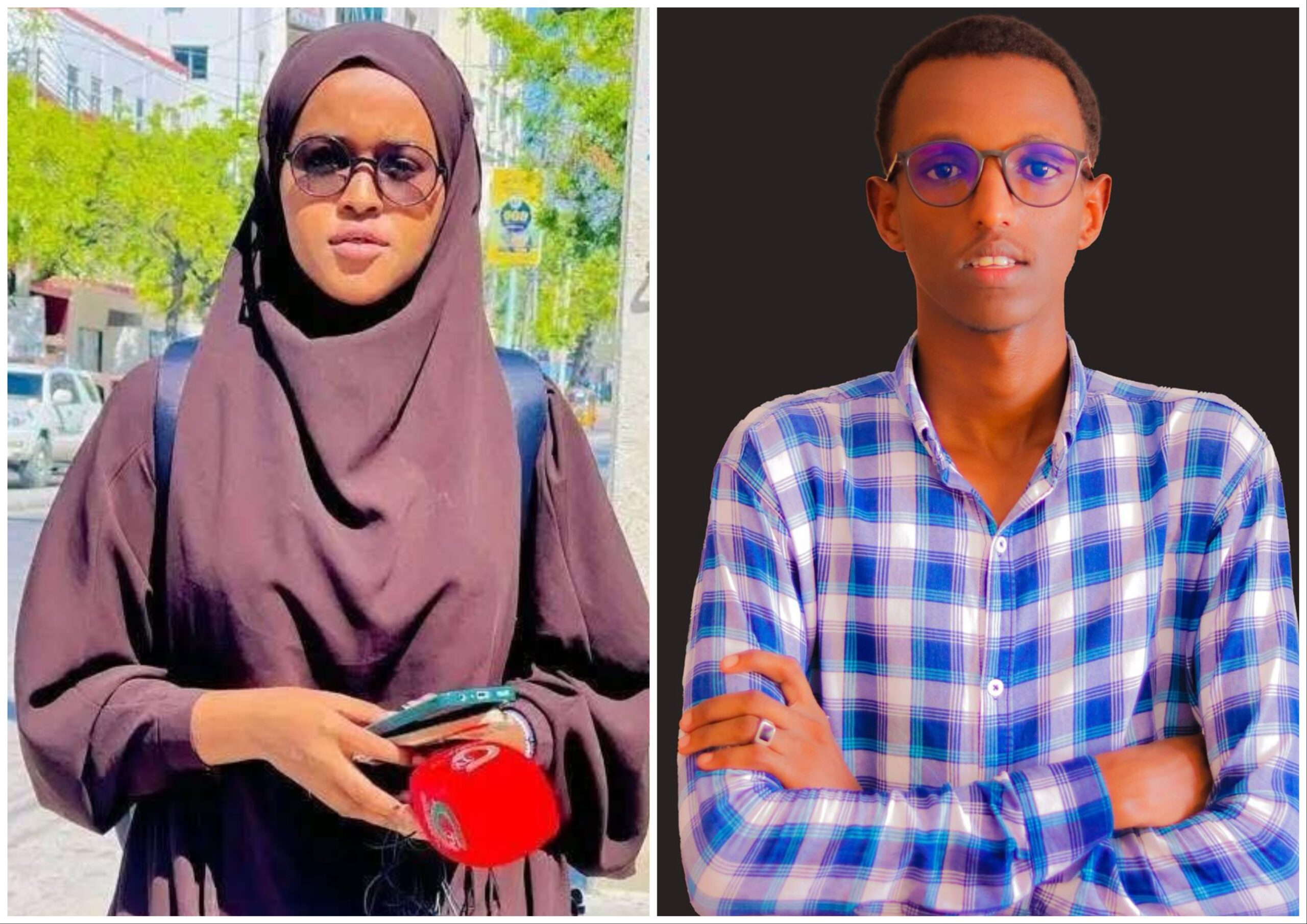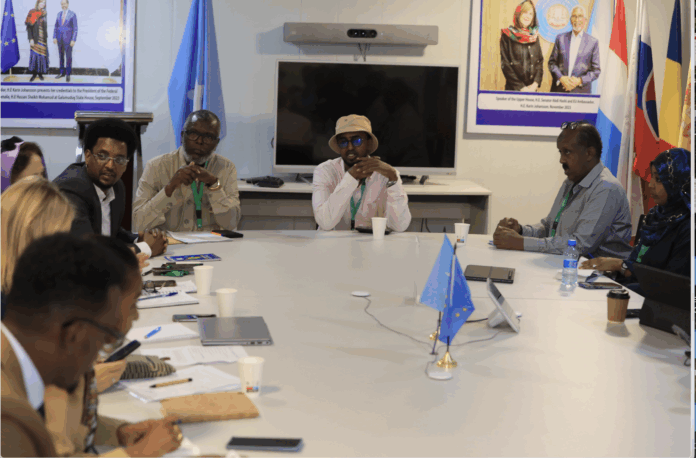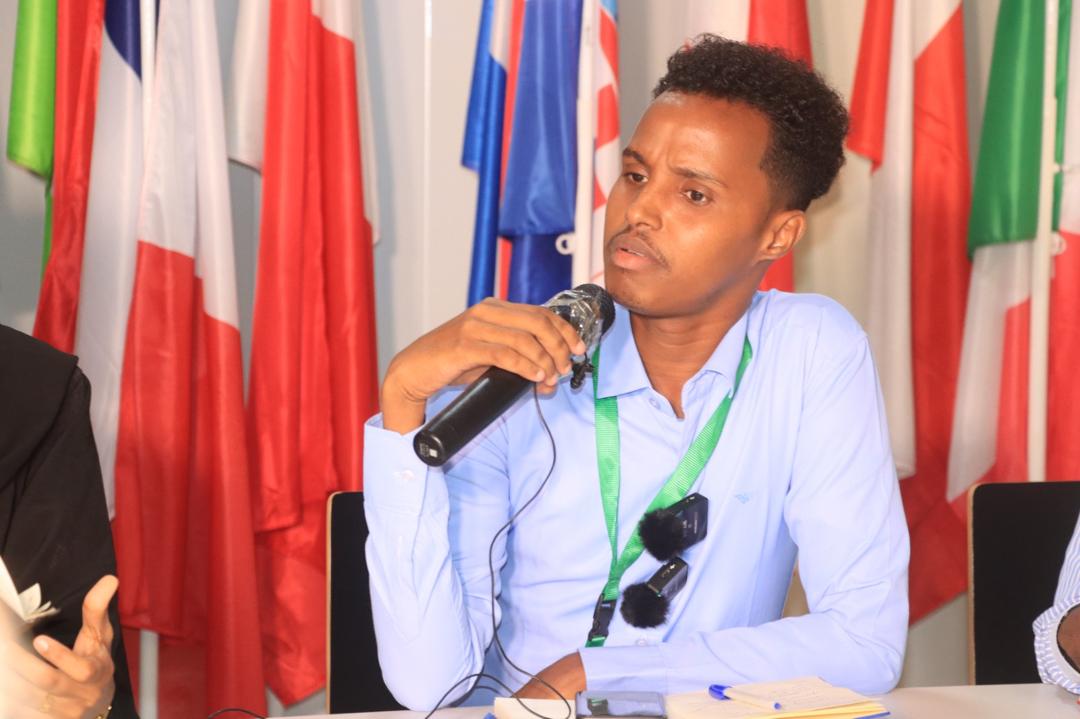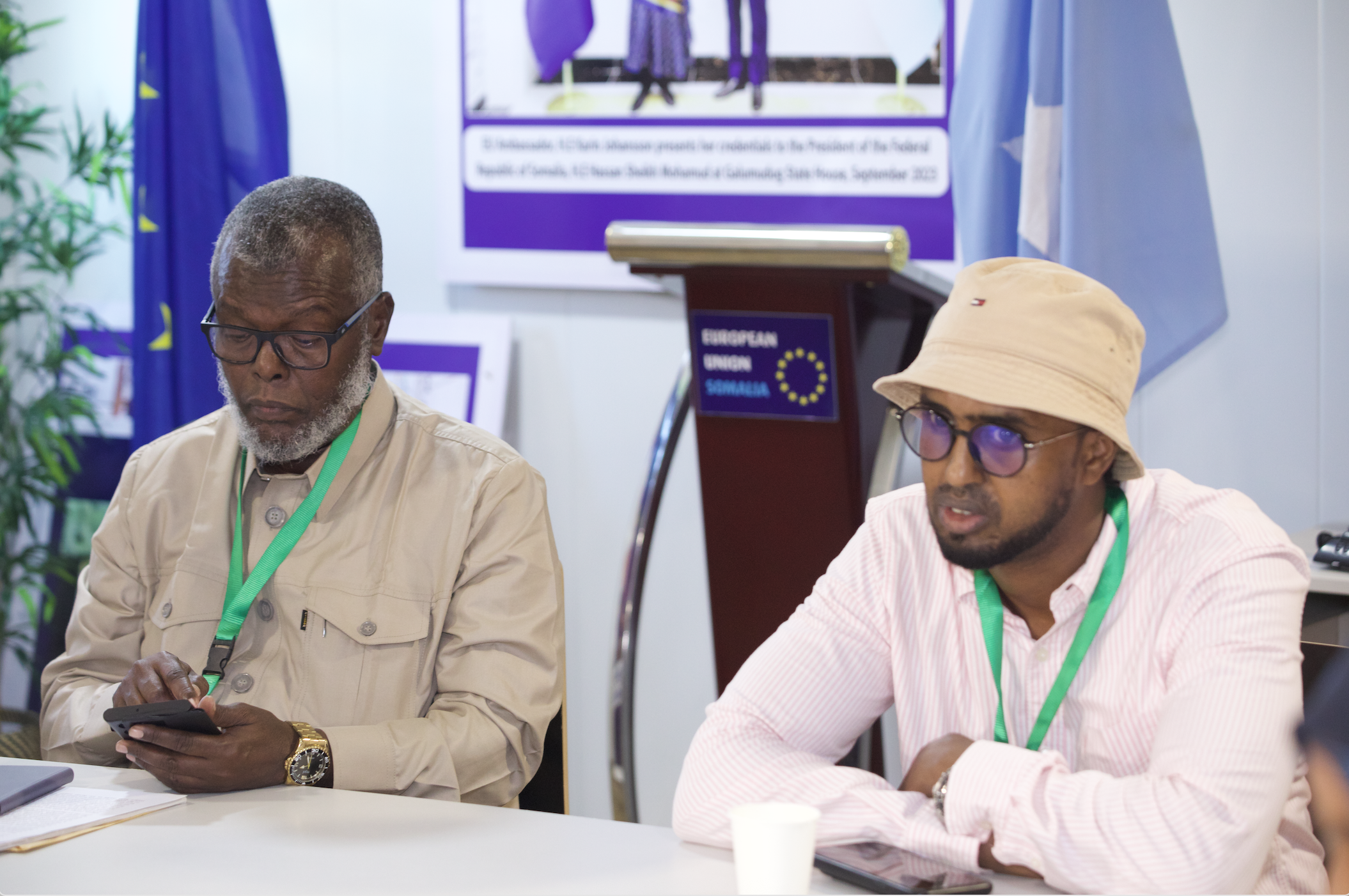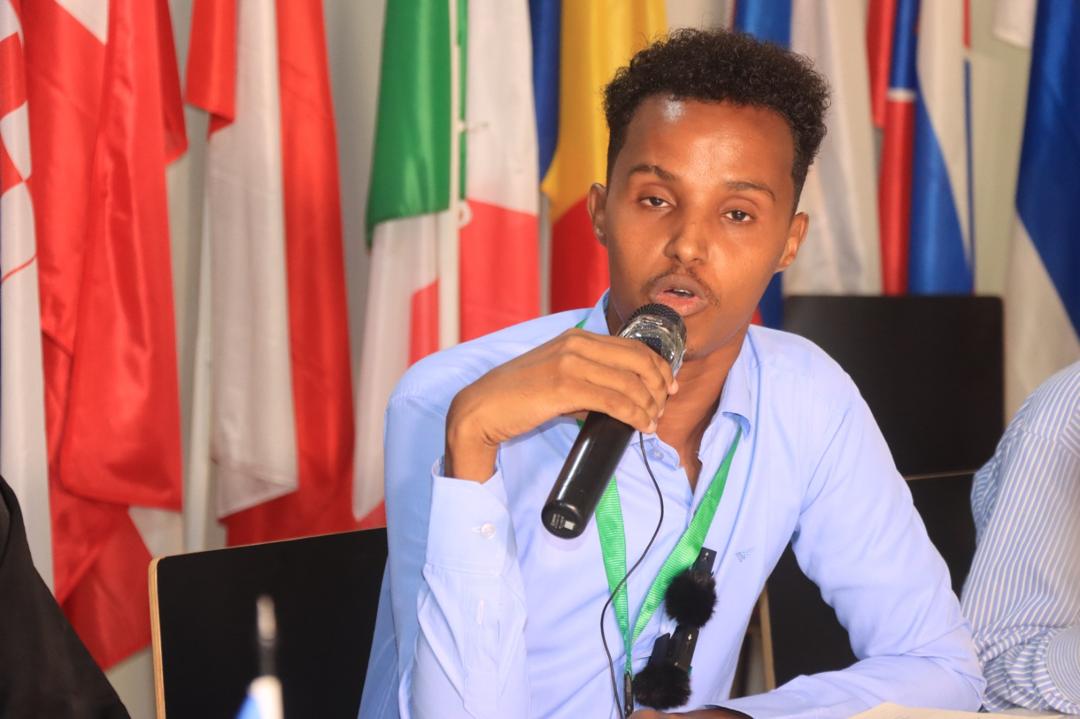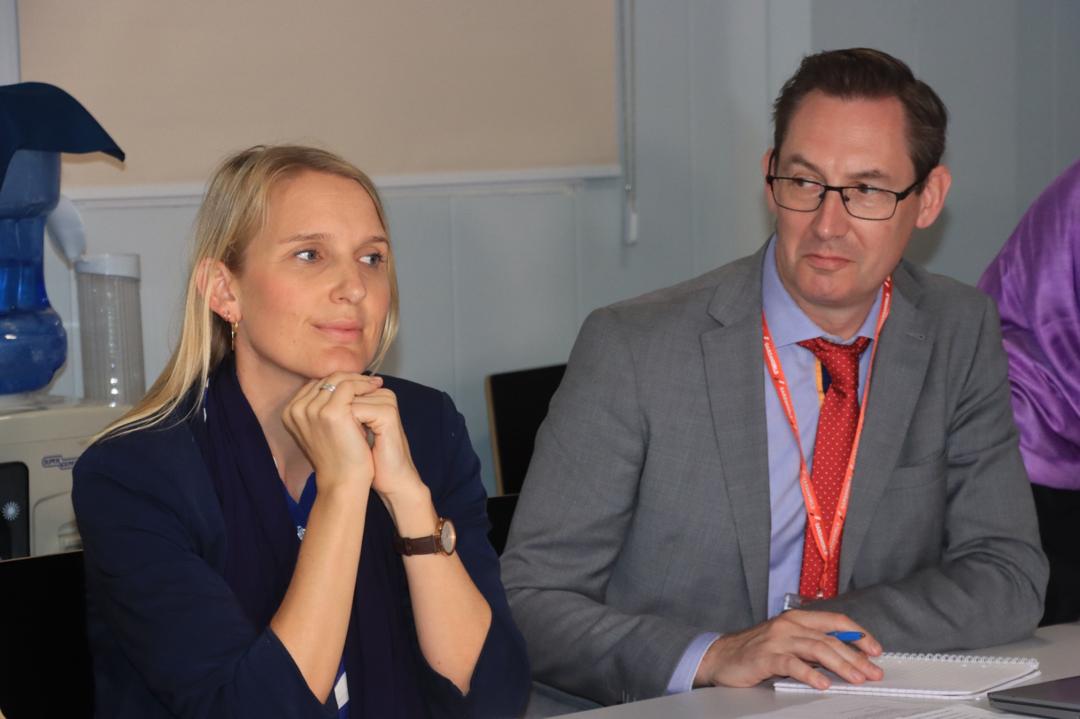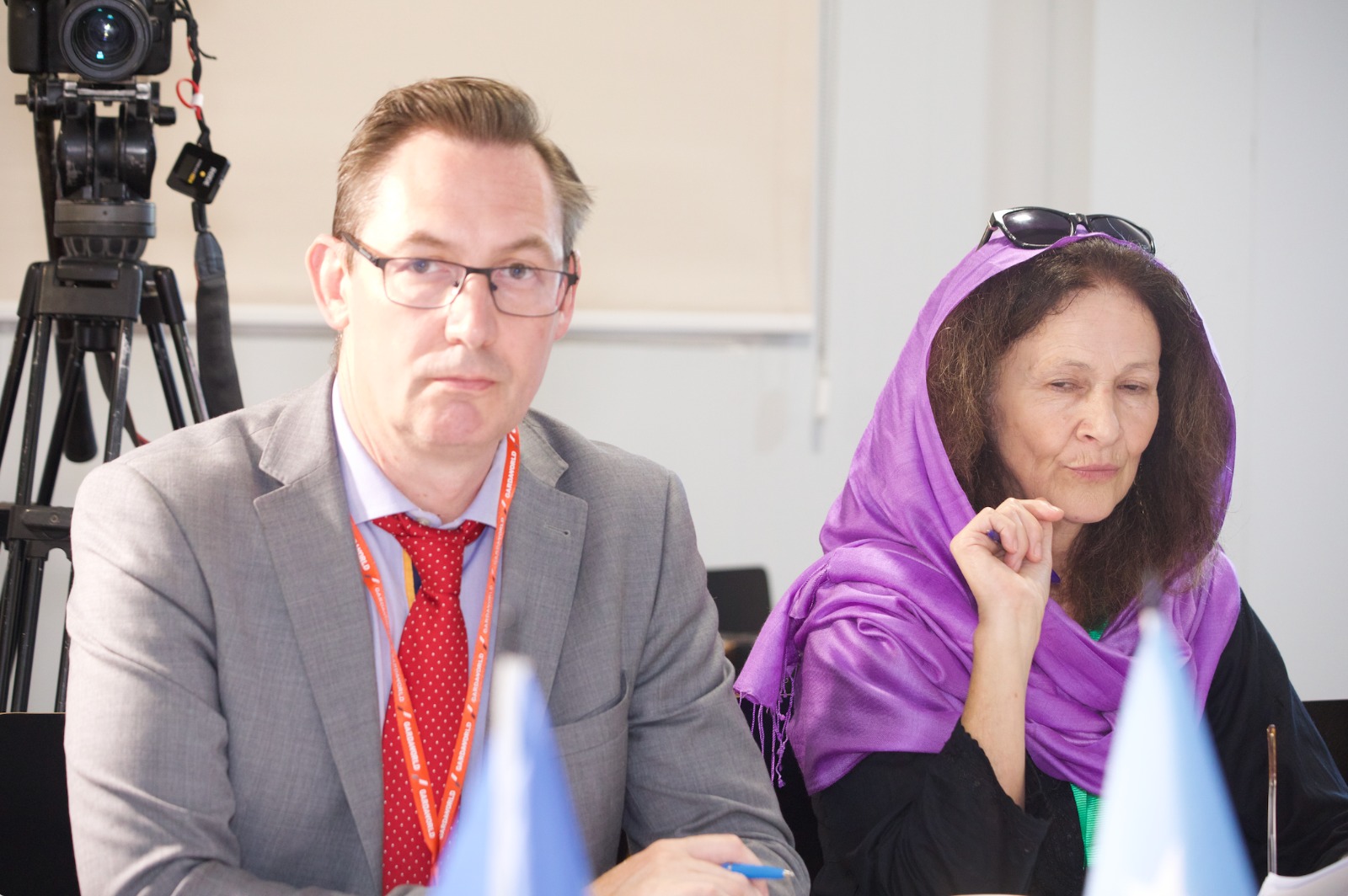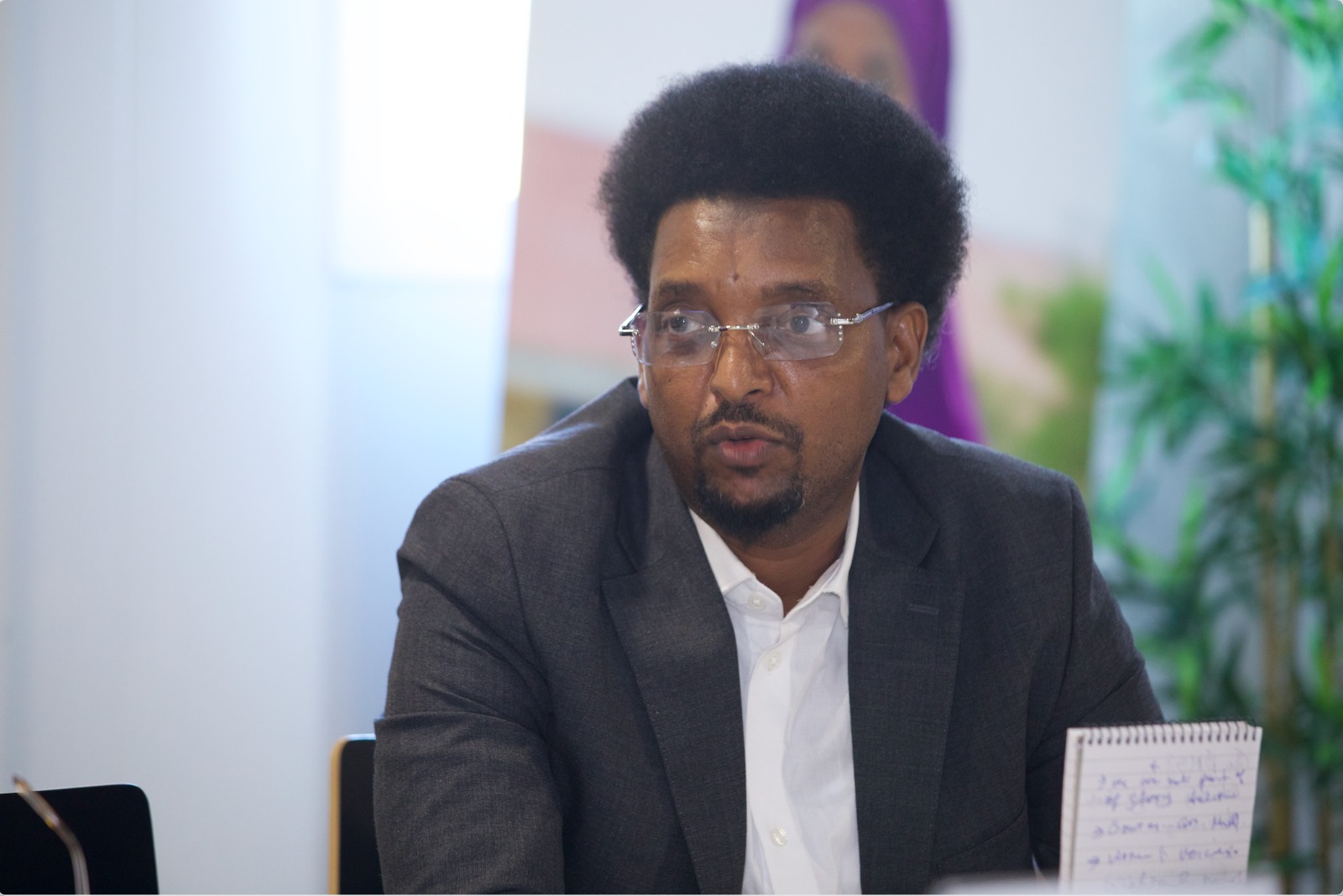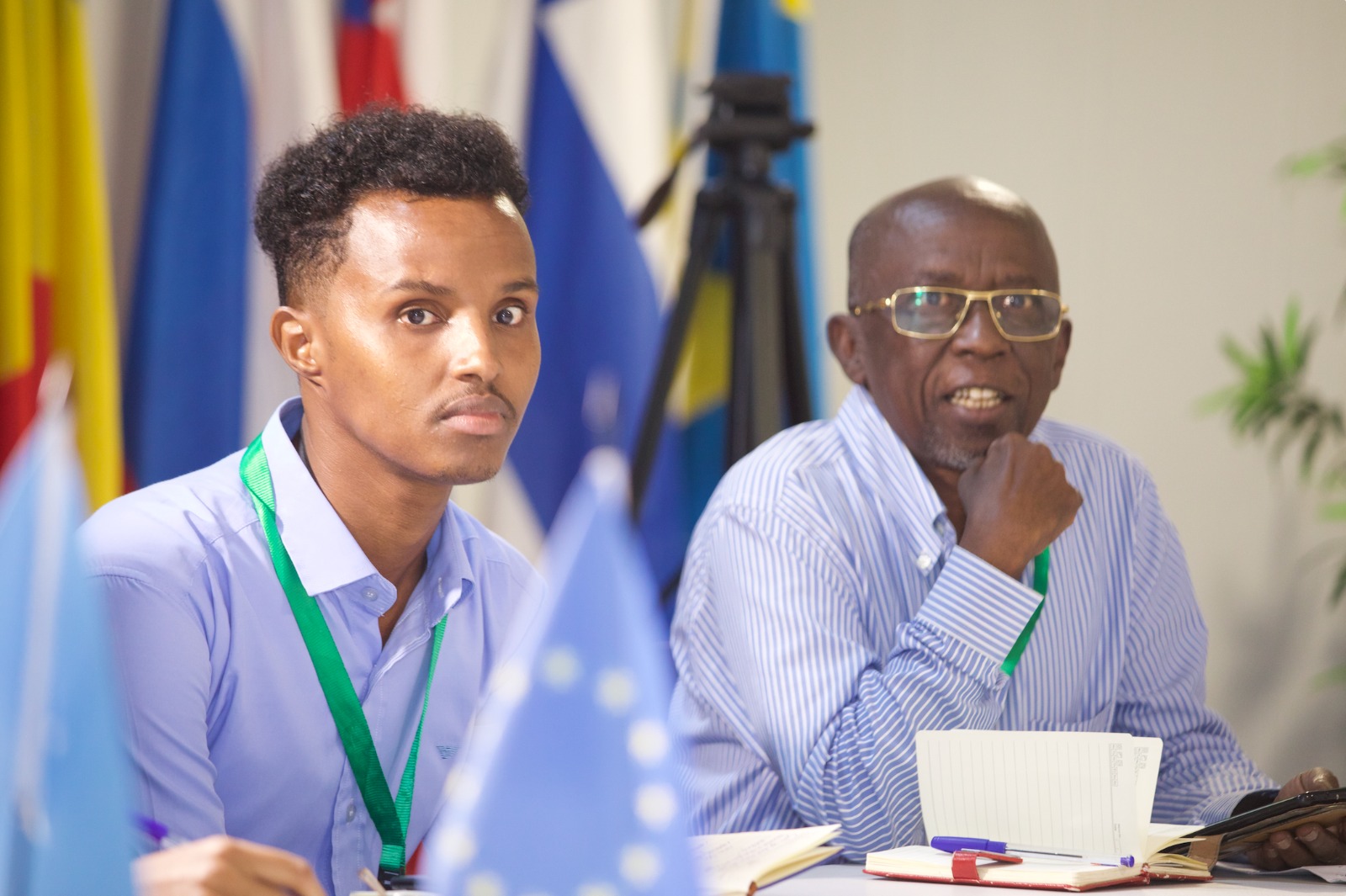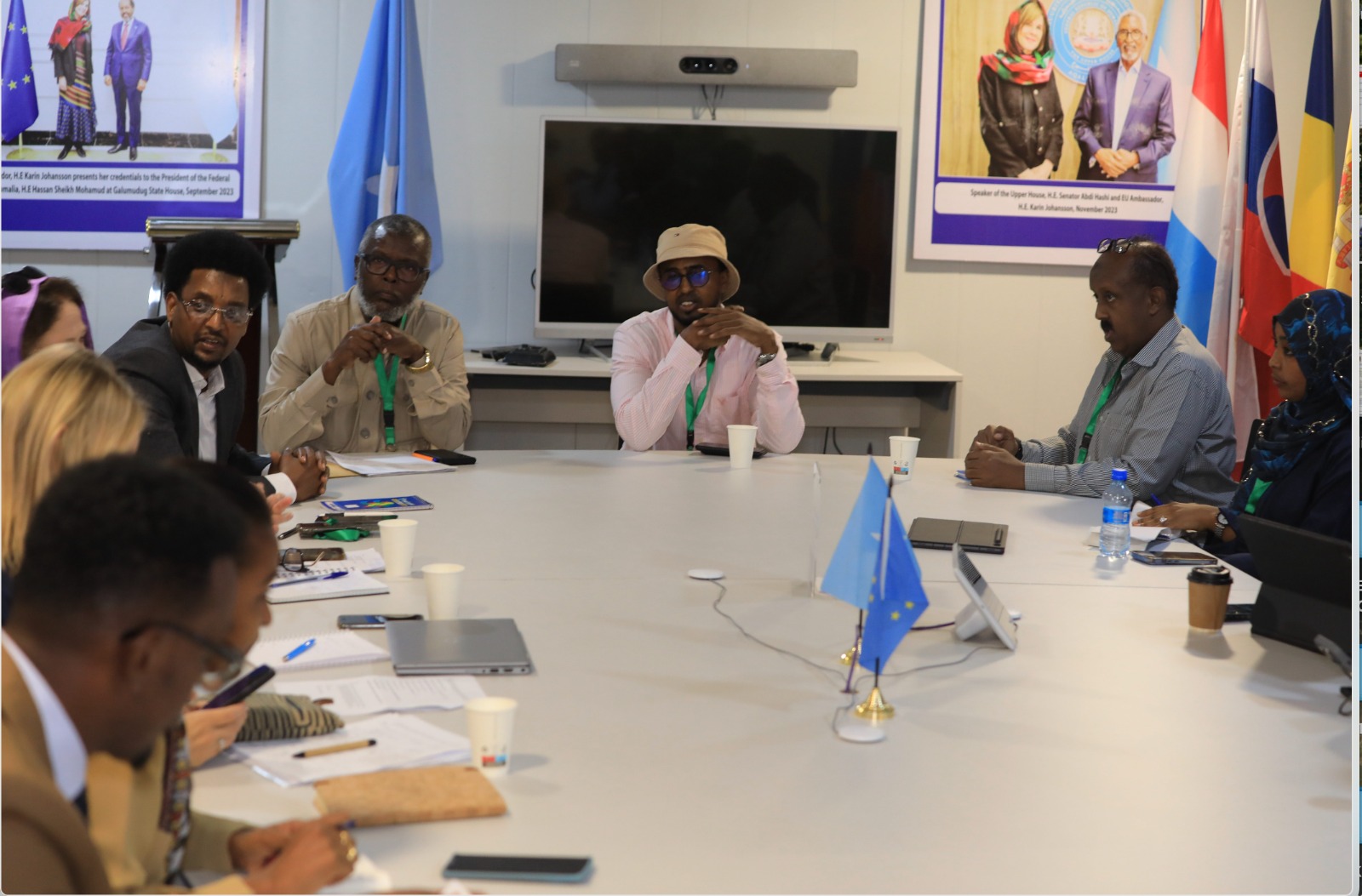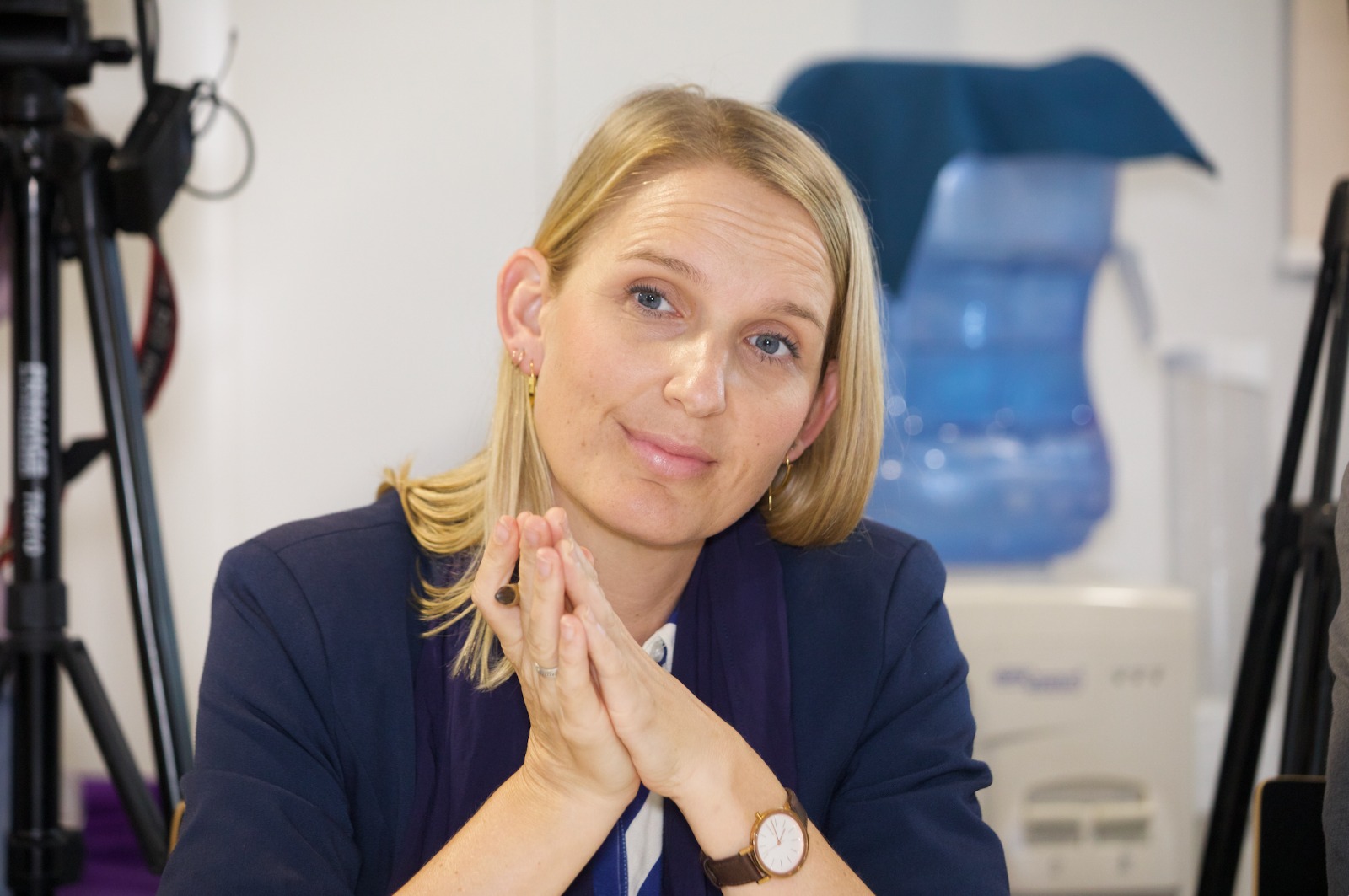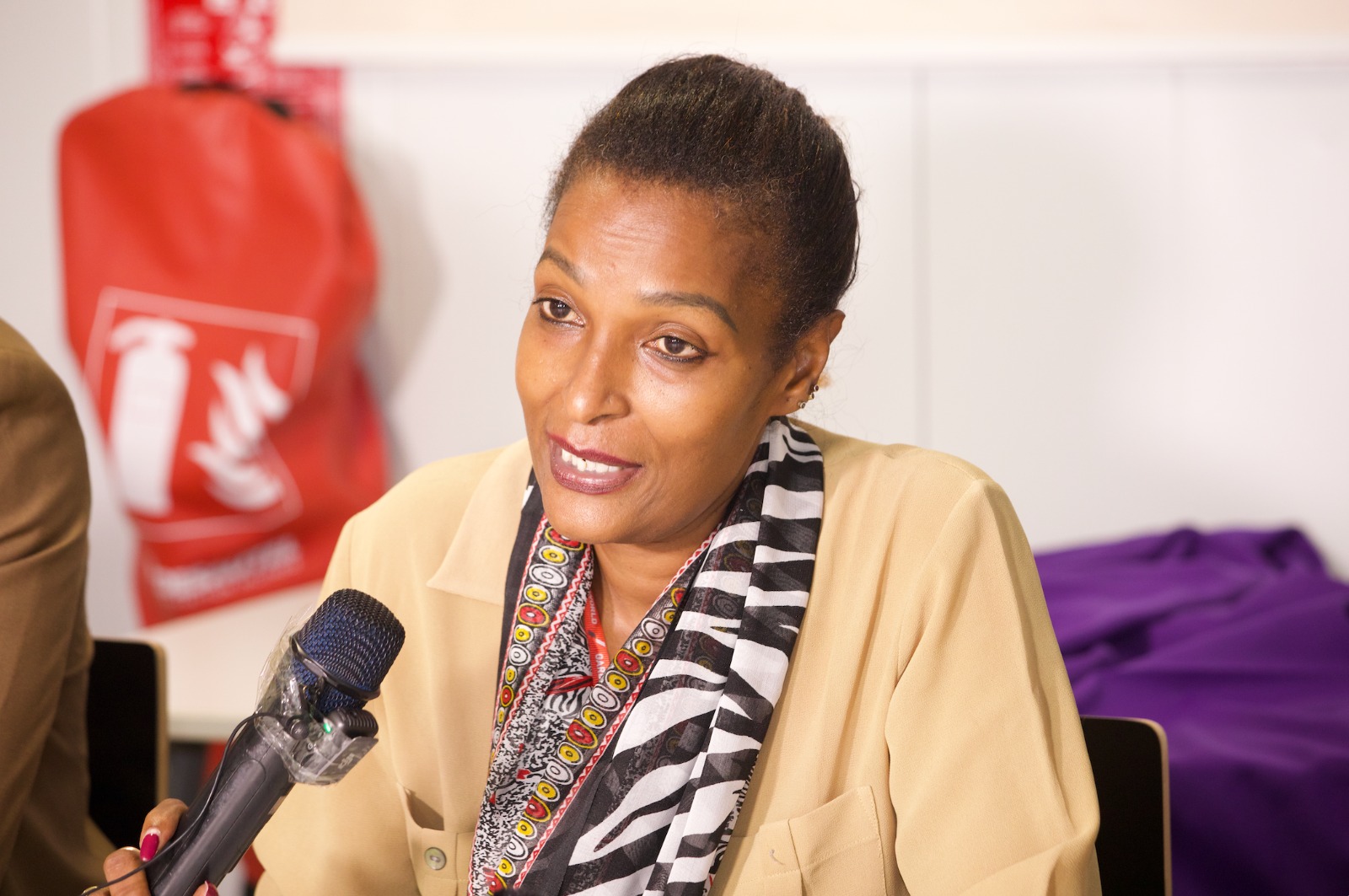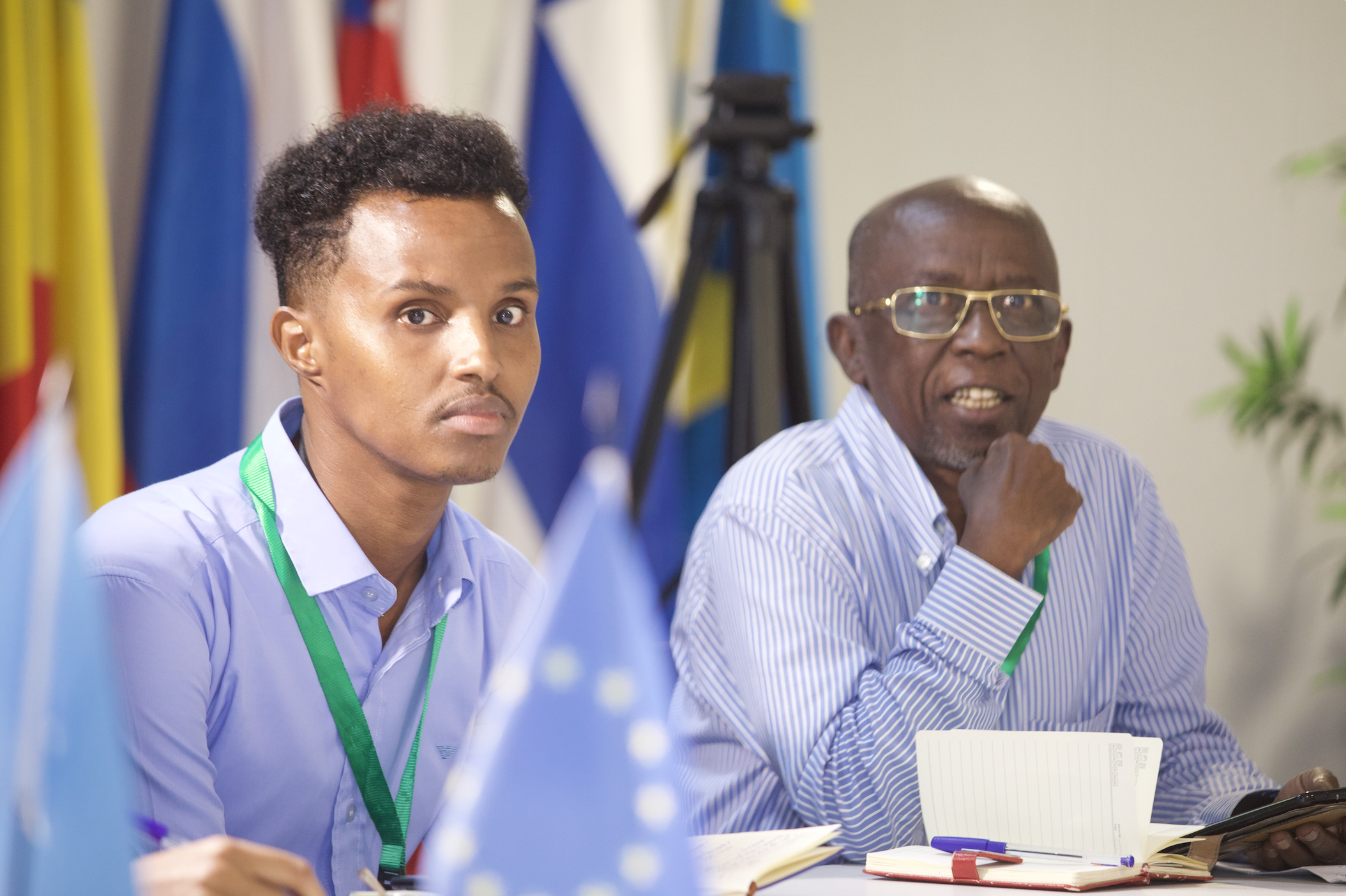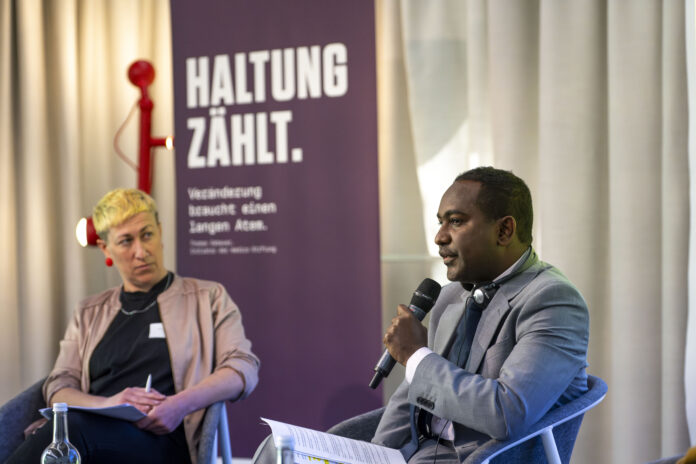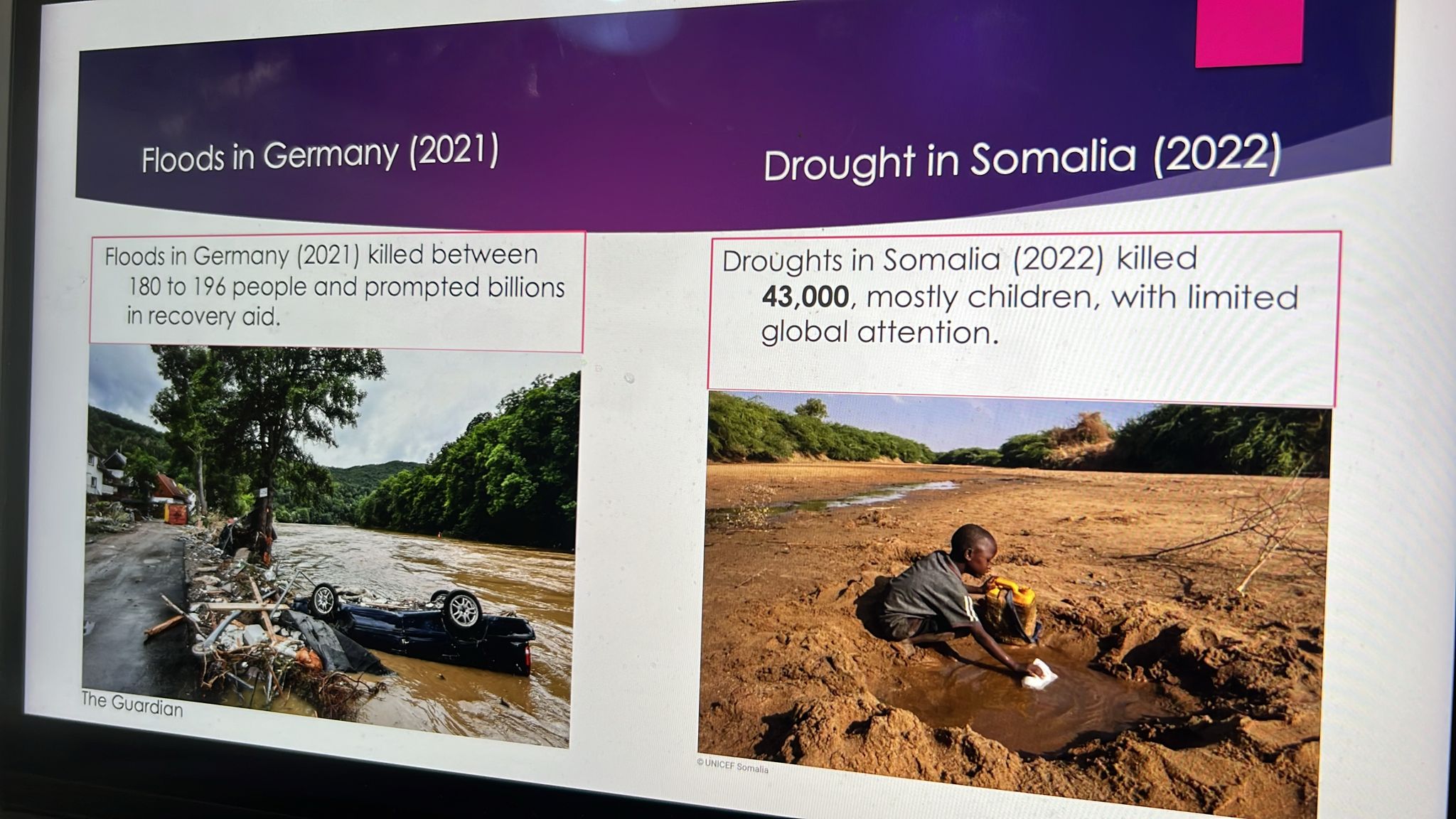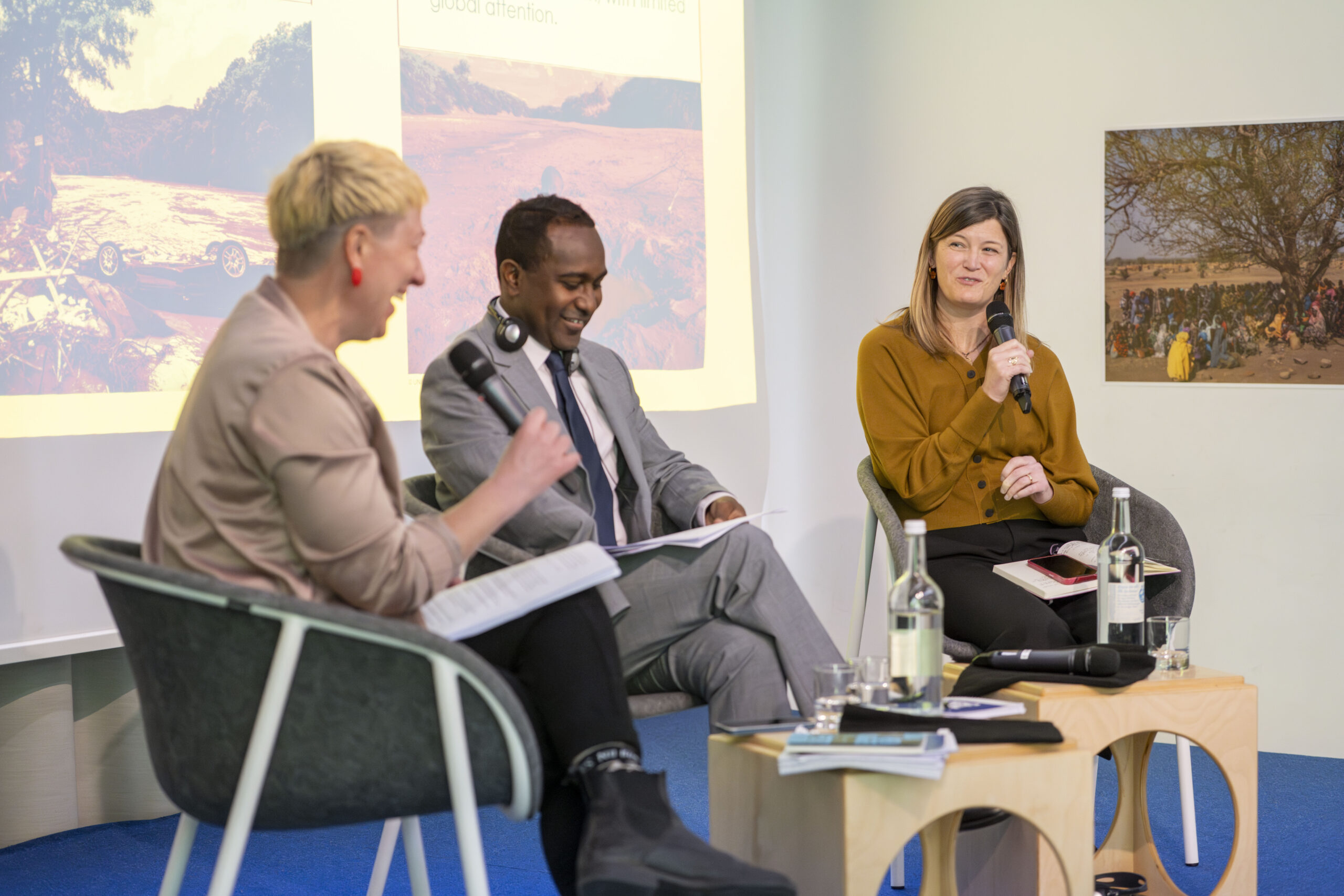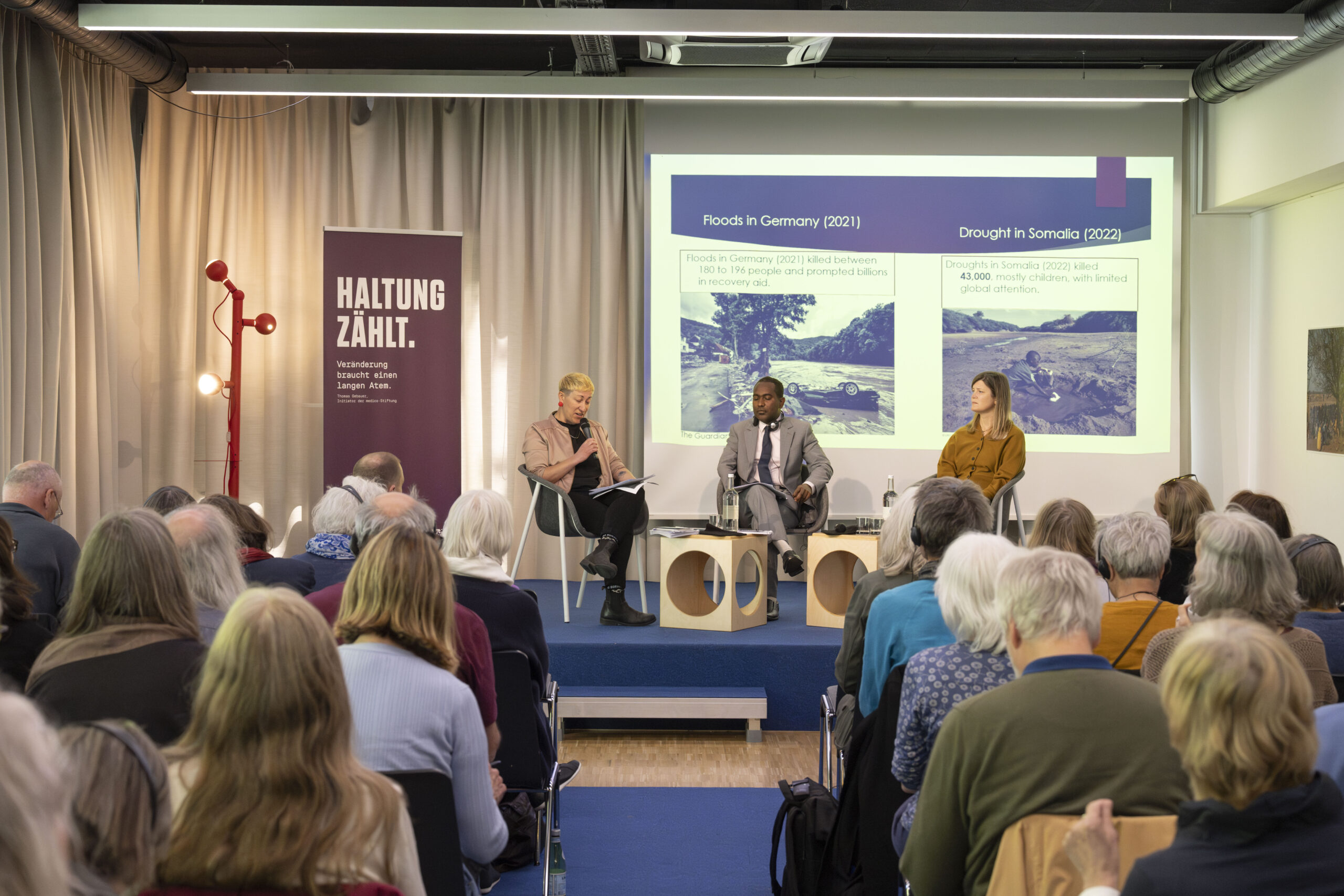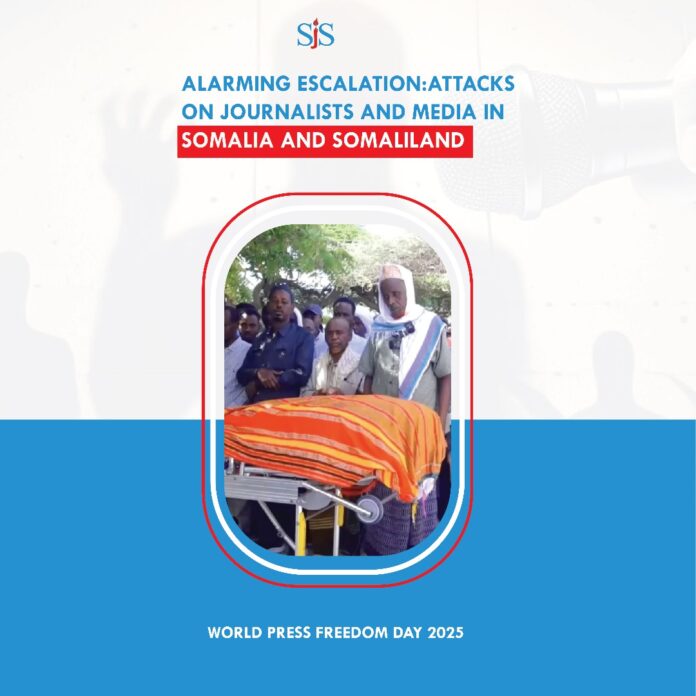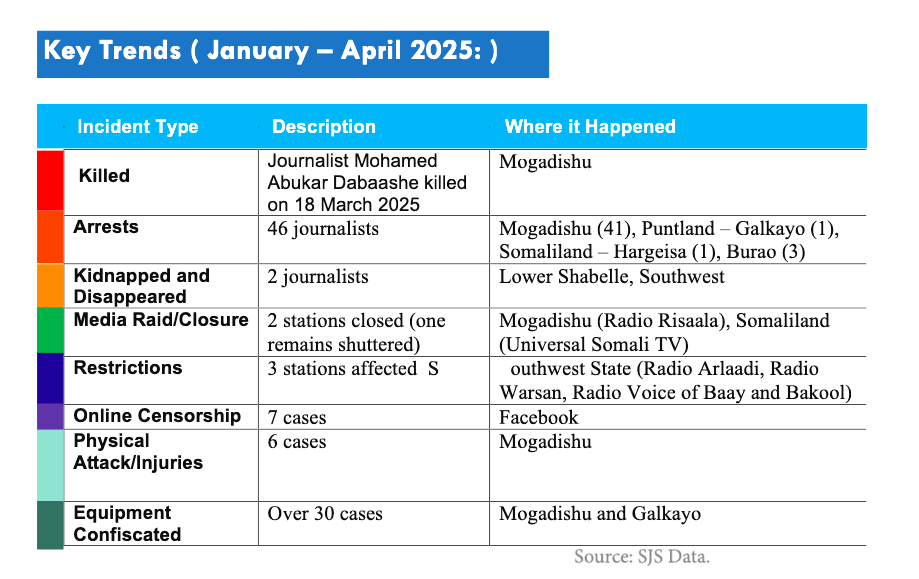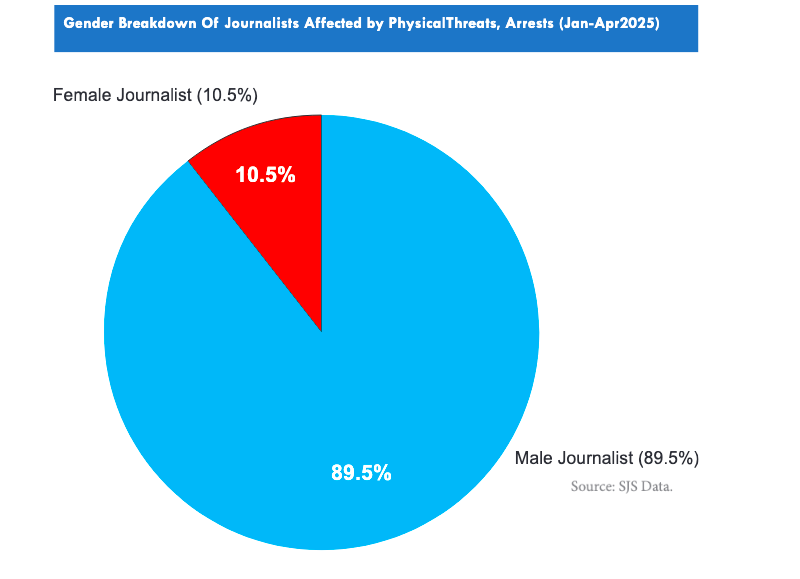MOGADISHU, Somalia, 13 June 2025 – The Somali Journalists Syndicate (SJS) strongly condemns the Thursday morning raid on the office of the privately-owned online television platform Himilo Somali TV in Mogadishu.
The raid was carried out by armed members of the Somali National Intelligence and Security Agency (NISA) in an apparent attempt to remove an interview deemed critical of the disputed federal electoral commission.
According to two journalists who spoke to SJS, at around 9:00 a.m. on Thursday, 12 June, fourteen armed NISA officers arrived at the Himilo Somali TV studio on Maka Al-Mukarama Road. Eight officers entered the premises while six remained stationed at the gate. The journalists, who were present inside the studio at the time, said the armed men terrorized the staff. The journalists locked themselves inside an office and refused to open the door. The NISA agents then contacted the station’s manager who were not inside at the time and demanded the removal of an interview broadcast earlier that morning.
In the interview seen by SJS, a young man revealed he had been “abducted from the street by armed men affiliated with the disputed electoral commission” in Mogadishu and was “forcibly registered as a voter without his consent”. The man expressed frustration, saying he felt “powerless and later tore up the registration documents” in protest.
A senior manager at Himilo Somali TV told SJS that the NISA agents also demanded the contact information of the young man interviewed—information the station refused to provide. The officers eventually left the studio but threatened to track down the television editor. At the time of publication, the interview, which SJS had reviewed, remained available online.
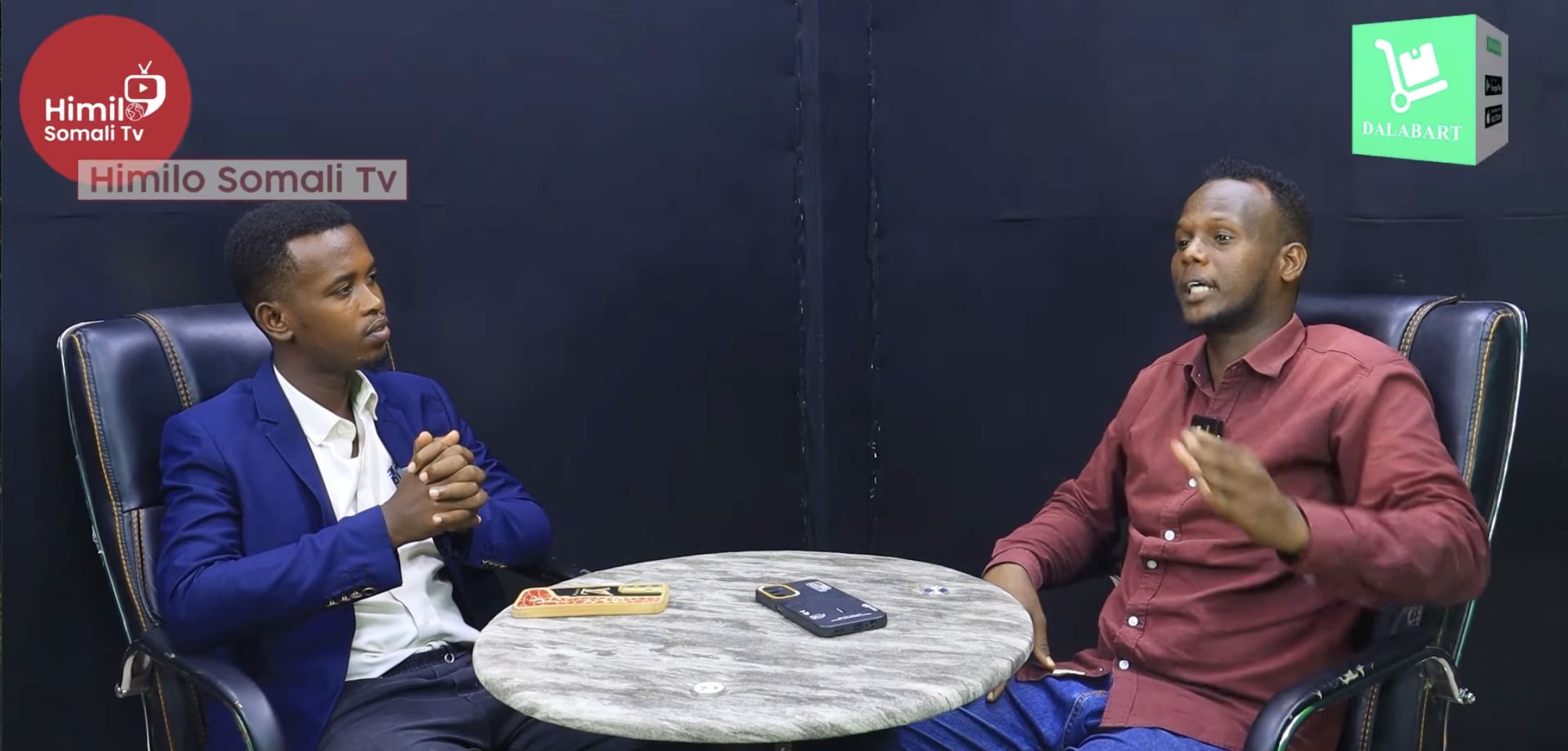
This raid is not an isolated incident. It is part of an ongoing pattern of attacks targeting media outlets and journalists perceived as critical of the electoral commission.
The commission members were appointed in late November 2024 by the council of the ministers, and in December, they announced the selection of Abdikarin Ahmed Hassan, a close ally of President Hassan Sheikh Mohamud, as their chairman. Multiple sources confirm that Abdikarin holds dual Somali-American citizenship. His appointment and the commission’s voter registration activities have been strongly rejected by opposition groups and regional states, including Puntland and Jubbaland.
- On 5 May 2025, NISA agents raided a residential home and media studio in Mogadishu’s Shibis district belonging to journalists Bashir Ali Shire and Mohamed Omar Baakaay. The journalists had previously spoken out about the abduction of “vulnerable women and youth” and their forced registration as voters. The attack occurred one day after Farah Adani, the Commissioner of Mogadishu’s Karaan district and a known supporter of the president, publicly incited violence against journalists. Adani urged supporters to “take machetes and sticks,” “break the journalist’s bones,” and even demanded “bring him in handcuffs.” He also labeled the journalist a “drug addict” and “worse than terrorists.” Following the threats, Mohamed Omar Baakaay went into hiding. Adani, now a member of the president’s new political party, later issued a public apology.
- On 28 May, Turkish-trained Haramcad forces in Mogadishu’s Kaxda district targeted three journalists: Nuh Farah Mahad (Reporter, RTN TV), Mohamed Abdukadir (Cameraman, RTN TV), Mohamed Abdi Hassan (Reporter, Five Somali TV). The journalists were covering a protest led by local elders who had been excluded from the controversial voter registration process. Shortly after the elders’ press conference, the journalists were attacked by armed officers. They were detained for nearly an hour, threatened, and ordered to surrender their equipment. They were later released after a group of clan elders intervened. The journalists reported that NISA gunmen attempted to shoot at them with pistols. That same day, RTN TV reported that police were conducting door-to-door raids in Kaxda, forcing residents to register as voters.
- In another incident on 26 May, journalists from multiple media outlets were attacked while reporting in Kaxda on the alleged abduction of local laborers by NISA. These laborers—primarily porters and construction workers—were lured with promises of employment, then locked up and forcibly registered as voters, according to media reports.
- A similar occurrence took place at Bakara Market, where journalists were threatened and had their equipment confiscated while documenting cases of alleged forced voter registration in May. Several street vendors and shop owners reported being abducted by NISA and compelled to register against their will, media reported.
- During this month (June 2025), media continued to report increasing incidents of forced voter registration affecting ordinary citizens—including students, teachers, and pedestrians. Victims report being stopped in public and having their photos taken without consent. Affected areas include Bakara Market, neighborhoods in Hodan District, and along Industrial Road, which connects to Dayniile, Yaaqshiid, and Huriwa districts.
SJS attempted to contact Abdikarin Ahmed Hassan for comment, but he was unavailable.
“The ongoing intimidation, raids, and threats against independent journalists and media outlets in Mogadishu who dare to report critically on the disputed voter registration process represent a dangerous escalation in the crackdown on press freedom in Somalia,” said Abdalle Mumin, Secretary General of the Somali Journalists Syndicate (SJS).
“Targeting journalists for exposing voter manipulation and abuse of power is not only unlawful—it undermines democratic principles, silences the voices of the Somali people, and erodes public trust in the system. We call on those involved to immediately end these attacks, hold all responsible parties accountable, and allow the media to report on violations freely and independently,” adds Mr. Mumin.
